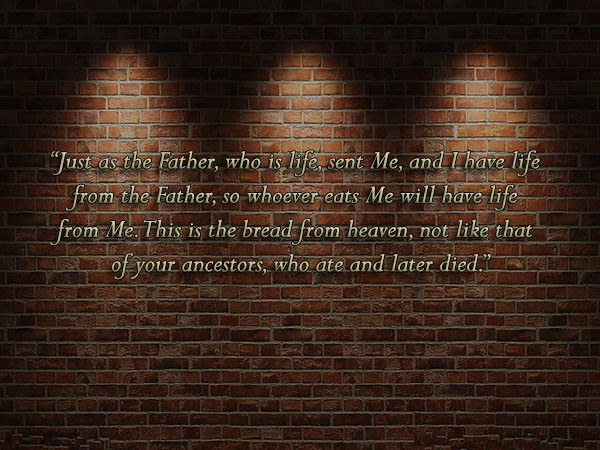Jn 13:1-15
It was before the feast of the Passover. Jesus realized that his hour had come to pass from this world to the Father; and as he had loved those who were his own in the world, he would love them with perfect love.
They were at supper, and the devil had already put into the mind of Judas, son of Simon Iscariot, to betray him. Jesus knew that the Father had entrusted all things to him, and as he had come from God, he was going to God. So he got up from the table, removed his garment, and taking a towel, wrapped it around his waist. Then he poured water into a basin, and began to wash the disciples’ feet, and to wipe them with the towel he was wearing.
When he came to Simon Peter, Simon asked him, “Why, Lord, do you want to wash my feet?” Jesus said, “What I am doing you cannot understand now, but afterward you will understand it.” Peter replied, “You shall never wash my feet!”
Jesus answered him, “If I do not wash you, you can have no part with me.” Then Simon Peter said, “Lord, wash not only my feet, but also my hands and my head!”
Jesus replied, “Whoever has taken a bath does not need to wash (except the feet), for he is clean all over. You are clean, though not all of you.” Jesus knew who was to betray him; because of this he said, “Not all of you are clean.”
When Jesus had finished washing their feet, he put on his garment again, went back to the table, and said to them, “Do you understand what I have done to you? You call me Master and Lord, and you are right, for so I am. If I, then, your Lord and Master, have washed your feet, you also must wash one another’s feet. I have given you an example, that as I have done, you also may do.
REFLECTION
At the time of Jesus in Palestine, people wore sandals and their feet got dirty from walking on dusty or muddy roads. Hence the need to wash them or have them washed by somebody else. But this task was considered so demeaning that one could only force a foreign slave to do it. Jewish slaves could not be required to do it. However, a loving wife could perform this service for her husband or devoted children for their father. Occasionally, disciples could do it for a particularly admired and venerated teacher.
But in today’s gospel reading, we see Jesus reversing the roles: here it is the teacher who gets on his knees and washes the feet of his disciples. A stunning gesture which shocks Peter and the others. Yet, it is only an anticipated symbol of the kind of humiliation that Jesus will suffer the following day: a death as a criminal for all of us.
Are we always standing on our pride? Or sometimes do we accept to humbly serve our brothers and sisters in whatever way we can?
God is on his knees, washing the feet of twelve rough fisherman. Such is God’s love to us.
CLARETIAN COMMUNICATIONS FOUNDATION, INC.
8 Mayumi Street, U.P. Village, Diliman, 1101 Quezon City, Philippines
Tel.: (02) 921-3984 • 922-00-11 • 921-28-59 Fax: (02) 921-6205, 927-7429
Bookstore: (02) 924-6835
Email: ccfi@claretianpublications.com / cci@claret.org
Website: www.claretianpublications.com








